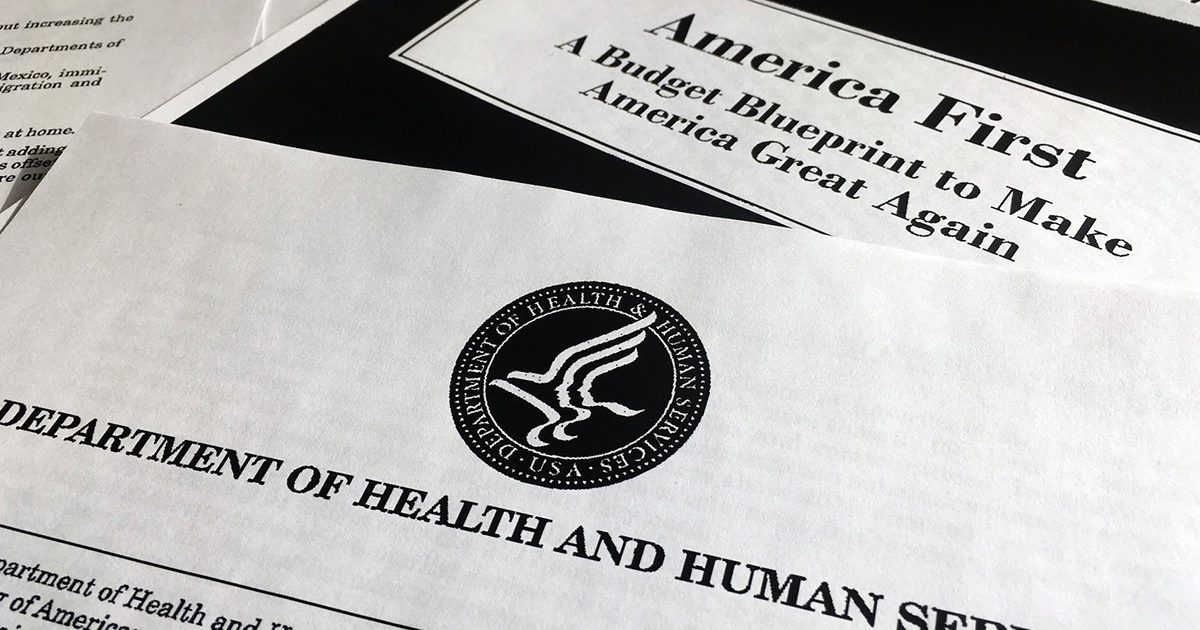
America’s newest President has begun to instill policies of censorship within various divisions throughout the Department of Health and Human Services.
This Thursday, head members of the HHS subsidiary Centers for Disease Control and Prevention were hit with a list of words and phrases that were forbidden for use during the drafting phase of the coming year’s budget. This list included the words “vulnerable”, “entitlement”, “diversity”, “transgender”, “fetus”, “evidence-based”, and “science-based.”
An official from another HHS agency was similarly informed during a recent briefing against the use of the words “entitlement”, “diversity”, and “vulnerable”. Officials present were also told to refer to the Affordable Care Act only as Obamacare, and to use the term “exchanges” rather than “marketplaces” when speaking about health insurance purchasing avenues.
The State Department received a separate mandate to replace the term “sex education” with “sexual risk avoidance.”
All of these changes were detailed out in a document coming from the Office of Management and Budget, and none were accompanied by explanations. The presenting GGS official was adamant about protecting the anonymity of the agency in charge of these vernacular-defining decision, in order to avoid prying or pointed controversy.
No information has been given on the status of other federal agencies in regard to word censorship. Officials from various HHS agencies were clear, however, about the fact that these kinds of restrictions are rare and fairly unprecedented.
The OMB is in charge of overseeing the inception of the annual presidential budget proposal before its submission to Congress. This budgeting plan is generally very lengthy and indicative of the priorities of the administration. The OMB has stayed silent on the topic of censorship, but the changes have been met with notable resistance from the scientific community and from various advocacy campaigns and organizations.
The American Association for the Advancement of Science Rush Holt spoke out, saying “among the words forbidden to be used in the CDC budget documents are ‘evidence-based’ and ‘science-based.’ I suppose one must not think those things either. Here’s a word that’s still allowed: ridiculous.”
While ruminating on the recent changes, Mara Keisling, who heads the National Center for Transgender Equality, cited the fact that the CDC has found higher risk of HIV infection amongst the transgender community.
A study published by the CDC in August that looked at 9 million agency-wide HIV test found that transgender women have “the highest percentage of confirmed positive results (2.7%) of any gender category.”
Keisling responded to the new policies with a warning: “To pretend and insist that transgender people do not exist, and to allow this lie to infect public health research and prevention is irrational and very dangerous, and not just to transgender people.”
The implementation of these changes has been heavily focused towards specific HHS agencies, but the ripple is being felt across numerous chapters. On Wednesday, the State Department was delivered a document laying out a ‘recommended plan’ for upcoming 2018 development of operating plans regarding the President’s Plan for Emergency AIDS Relief (PEPFAR). This document solidified the fact that congressional funding has been allocated to assist the transition within public sex education to refocus on outdated, abstinence advocating schools of thought.
Speaking on behalf of the Kaiser Family Foundation, Jen Kates, the foundation’s vice president and director of global and HIV health policy, stated that heavy focus on abstinence-only programs detailed within the PEPFAR document will likely reorient priorities on funding, both domestically and abroad.
“It’s a change, and the language in these documents does matter because that’s what’s communicated to the teams in the field,” said Kates. That being said, she followed that up with an illusion to the idea that it is still “too early to tell” to predict exactly how the ideology will manifest via changes in funding.
Database information from the Foundation for AIDS Research (Amfar) shows that the portion of PEPFAR funding allocated to “Abstinence/Be Faithful” programs in 2017 dropped from 7 percent to 1 percent, resulting in a reduction of almost $238.2 million in spending.
The aforementioned document dedicated some portions of the manifesto explicitly to singing the praises of “abstinence as a highly effective form of prevention.” The fact that previous studies and inquests into the effectiveness of an abstinence-only education method contest the document’s proclamation was ignored.
In 2007, a congressionally endorsed study found that abstinence-only programs resulted in teenagers who were not notably less likely to abstain from sex that teenagers provided with more comprehensive and less dogmatic sex education. Neither the age nor number of partners reported by sexually active teens changed as a result of abstinence-heavy educational methods.
The Guttmacher Institute’s senior policy advisor Jesse Boyer went on record this Saturday saying that she strongly disagreed with the idea that swapping the term “abstinence” with “sexual risk avoidance” would increase the effectiveness of what is essentially the same set of principles and guidelines.
“It’s the continual promotion of a coercive and ideological agenda over what the science and research tells us what young people need to lead healthy lives.”
According to the State Department, survey data reporting that “an average of 1 in 3 young women had a first sexual experience that was forced or coerced” played an important role in the decision-making process of PEPFAR policy changes, leading to a new focus on girls aged 9 through 14.
An HHS official claimed that the response to this move towards abstinence-heavy education mirrors the response at the CDC after the list of banned words became actionable policy.
“People were surprised, people were not thrilled,” said the official. “We all kind of looked at each other and said, ‘Oh, God.’ ”
The CDC was provided with a suggested alternative to the phrase “evidence-based”, worded instead as “CDC bases its recommendations on science in consideration with community standards and wishes.” “Evidence-based” was the only blocked term accompanied with a suggested alternative.
The briefing that took place at the CDC was headed by a seasoned civil servant who oversees the drafting of the CDC’s budget. The meeting commenced with a clear focus on the list of banned words, stating that documents that contained the words “vulnerable, “entitlement” and “diversity” would be flagged and sent back to the agency by overseers for revision.
The head of the meeting then proceeded to add the words “fetus”, “transgender”, “evidence-based” and “science-based” to the list of words that would no longer be tolerated. The only rationale behind this decision came from a senior CDC budgeter, claiming that the phrases “evidence-based” and “science-based” had nearly lost their meeting due to overuse in reports and CDC budget documents.
A statement issued by HHS spokesman Matt Loyd reported that “The assertion that HHS has ‘banned words’ is a complete mischaracterization of discussions regarding the budget formulation process. HHS will continue to use the best scientific evidence available to improve the health of all Americans. HHS also strongly encourages the use of outcome and evidence data in program evaluations and budget decisions.”
After offering his strongly worded statement, Lloyd refused to pinpoint any specific misrepresentations in The Washington Post’s reporting regarding the issue of CDC budget censorship.
As a response to all of the commotion, CDC Director Brenda Fitzgerald sent an email to staff members late Saturday evening to reinstate the CDC’s legacy of making health decisions on behalf of the public that are informed by current and reliable scientific findings. “I want to assure you that CDC remains committed to our public health mission as a science- and evidence-based institution,” wrote Fitzgerald.
A participant from the CDC briefing claimed that the directions to steer clear of the seven words on the list came through loud and clear, even if the words were only to be avoided during budget drafting.
“What would you call it when you’re told not to use those words?” asked the CDC analyst. “If that’s not a ban, maybe I need to improve my vocabulary.”
If you found this article helpful, please share with friends and family by clicking the button below!
Source: [1]




